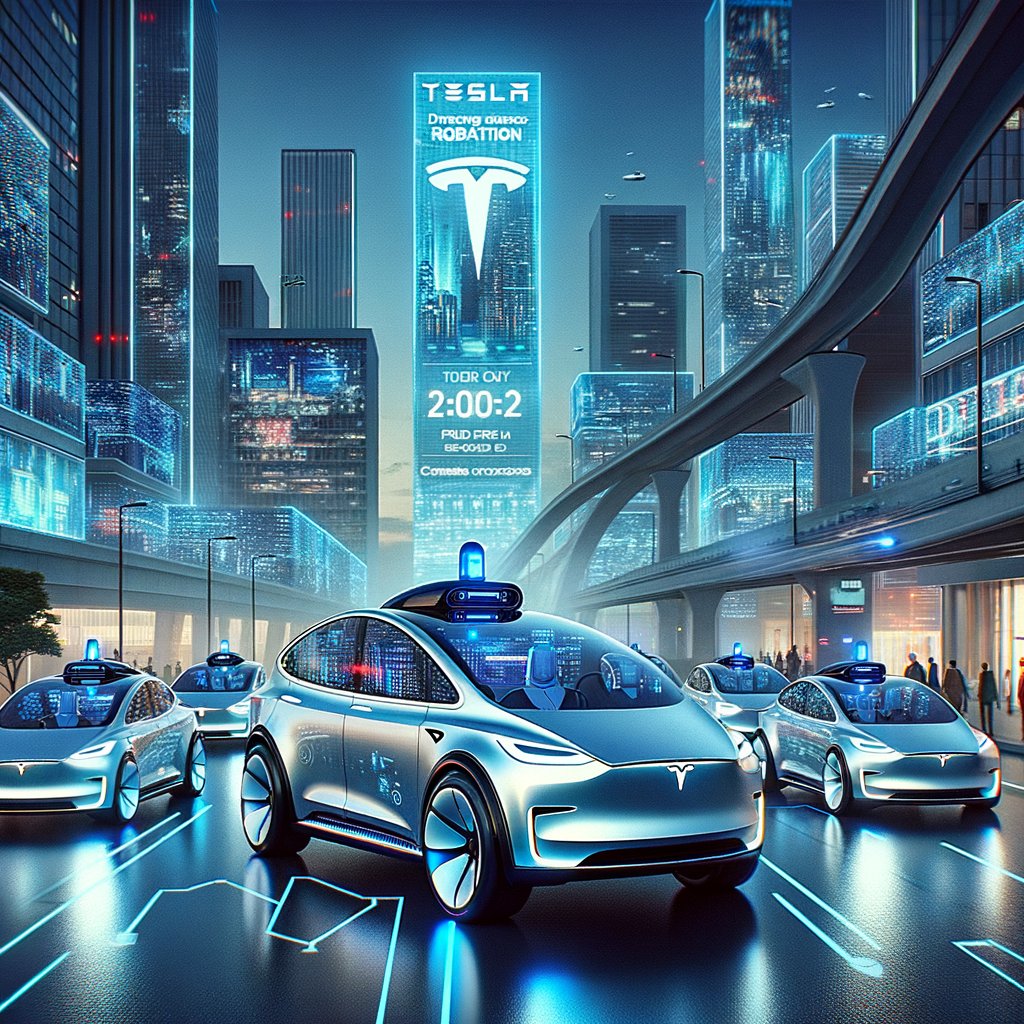Image created by AI
Tesla Envisions Rollout of Paid Robotaxis in 2024 Amid Regulatory Challenges
Satori News Agency - Tesla's ambitious plan to implement a fleet of driverless ride-hailing services is greeted with optimism and caution as CEO Elon Musk announced potential paid robotaxi operations in California and Texas by next year. The unveiling comes amidst considerable skepticism regarding the numerous regulatory and technical challenges that Tesla will inherently face.
Musk's claims, made in a quarterly earnings call, assert that Tesla envisages a system where driverless cars will offer paid rides. The company has already initiated an app-based ride-hailing service for employees in the San Francisco Bay Area. Musk's renewed pledge sparked fresh investor enthusiasm as Tesla predicts a surge in vehicle sales — a stark contrast to the previous faltering of stock prices due to uncertainties surrounding robotaxi business prospects.
In California, the path to deployment is fraught with stringent regulations. Predecessors like Alphabet's Waymo invested years and vast resources into testing before securing permission from the California Public Utilities Commission (CPUC) to offer paid autonomous rides, a benchmark Tesla must also meet. In 2019, Tesla's last reported use of its autonomous vehicle testing permit, which necessitates a safety driver, signals another significant regulatory barrier. The company currently lacks a CPUC-required driverless testing permit and will need one to move forward.
Tesla's internal Bay Area ride-hailing service skirts these requirements since employees are not officially regarded as passengers, circumventing the need for a specific permit. The proposed Tesla robotaxi, the "Cybercab," which would operate without steering wheel or pedals, signifies a technological leap in its commitment to an autonomous future, relying on cameras and AI for navigation.
Musk acknowledges the regulatory complexities in California, admitting the company's limited control over the approval process. Tesla shareholder Ross Gerber underscores the difficulty in navigating the regulatory landscape, deeming the process far from straightforward. Meanwhile, Texas presents a more relaxed regulatory environment, yet historical precedents suggest that extensive testing periods are common practice before any commercial deployment of new vehicle technologies.
At the national level, Musk advocates for a unified approval system, highlighting inconsistencies in state autonomous vehicle regulations. However, Tesla's Full Self-Driving (FSD) system, essential to their robotaxi goals, endures scrutiny itself. The NHTSA initiated a probe into Tesla vehicles equipped with FSD following several reported collisions, including a fatal incident in 2023.
Despite the hurdles, the mere prospect of Tesla's advancement into the ride-hailing market influenced stock activity, with competitors Uber and Lyft experiencing post-market dips. Tesla's persistent strides towards autonomous ride-hailing signal a transformative era for the transportation industry, setting the stage for a future where electric, driverless vehicles could become the new norm for urban mobility services.










